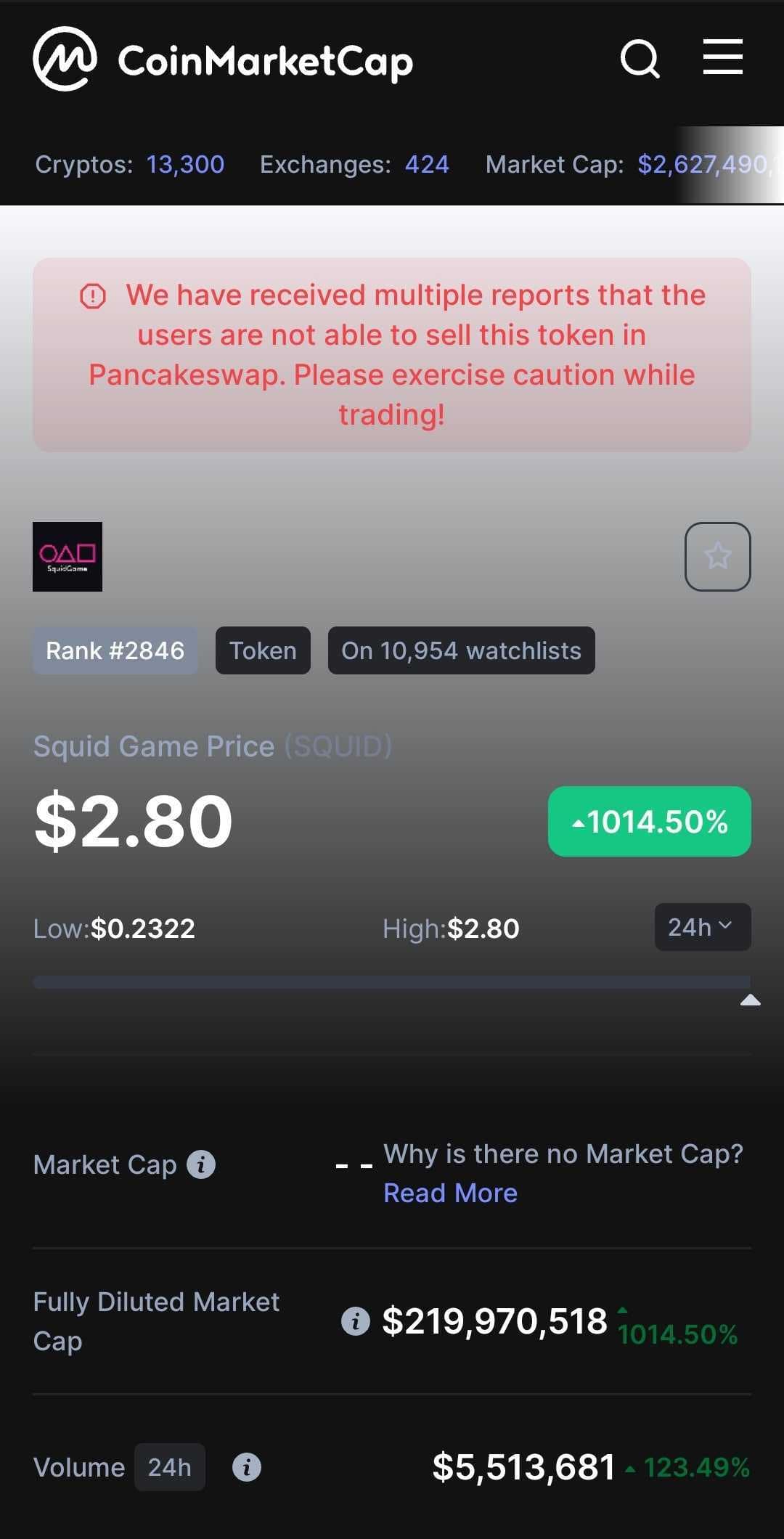
An imitation of a giant doll featuring in South Korean survival drama ‘Squid Game’ was launched this week at a Seoul park, giving fans and curious onlookers a chance to experience a bit of what it feels like being on Netflix’s mega hit show. (Image: Reuters)
South Korean juggernaut ‘Squid Game’ now has its own brand of cryptocurrency that has gained 2,400 percent in 24 hours, to trade at $ 2.22, CNBC reported. Further, market capitalisation of the novelty token ‘SQUID’ is above $ 174 million.
As of 9.40 am on October 29, it was trading at $ 2.80 – jumping a further 1,014.50 percent, as per CoinMarketCap. Volume of trade over 24 hours was up 123 percent to $ 5,513,681.
The Korean-language Netflix death-game drama made headlines after it became the streaming platform’s most widely watched show ever. The crypto began pre-sale on October 20 and its whitepaper claims it sold out “in 1 second”.
Notably, CoinMarketCap has posted a notice for interested users about the token, stating that it “received multiple reports that users are unable to sell this token on Pancakeswap”, and asked to “exercise caution” when trading.
 SQUID on CoinMarketCap
SQUID on CoinMarketCap
While it is at present unclear why users have been unable to trade the tokens, the whitepaper does state it has anti-dumping technology that prevents sale of the coins if certain conditions are not met, the report said.
Contacts listed on the whitepaper did not respond to CNBC’s queries, it added. Pancaskeswap is a popular decentralised crypto exchange.
The token was launched as “exclusive coin” for the Squid Game project – a crypto play-to-earn tournament that launches in November. The tournament, which has no maximum payout or limit on number of players, will otherwise mimic games played on the show – but without the “deadly consequences”, the whitepaper added.
Players will have to pay a pre-set price in SQUID and some rounds will require custom NFT which will be for sale on their website. The final game of the tournament is expected to cost 15,000 tokens or $ 33,450, plus an NFT, the report said. It added that entry fees are split 10:90 between developers and the pooled winners’ amount, respectively.
